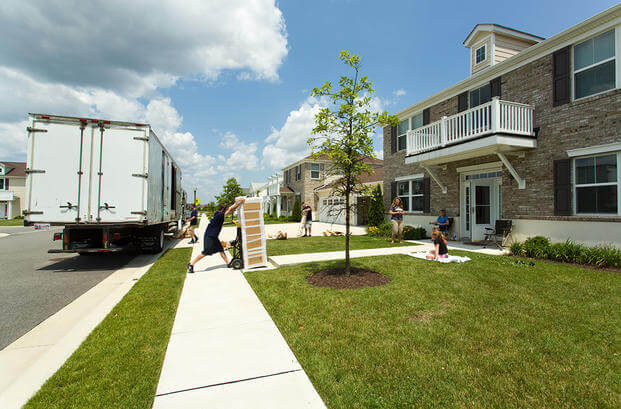The Department of Veterans Affairs' chief benefits official gave assurances Thursday that the department would strive to make whole student veterans who were underpaid for housing stipends under the new Forever GI Bill but left open the possibility that some may never be fully reimbursed.
"There could be some we underpay out there" under the complicated formula for calculating the housing allowances, and the equally complicated fix the VA announced Wednesday, Rep. Phil Roe, R-Tennessee, told VA Undersecretary Paul Lawrence, head of the Veterans Benefits Administration.
At a hearing of the House Veterans Affairs Committee, Lawrence initially responded that all students veterans would get what they were owed -- "retroactively, if need be" -- and he blasted an NBC News report that suggested otherwise.
"Nothing could be further from the truth," Lawrence said, but he appeared to backtrack in additional rounds of questioning from Roe, the committee's chairman, and other members of the panel.
New rates for the housing stipends were supposed to go into effect Aug. 1 under the Forever GI Bill signed into law by President Donald Trump, but the VA botched the installation of IT systems that could handle the changes, resulting in backlogs for thousands of claims.
VA Secretary Robert Wilkie announced Wednesday that the new rates will now go into effect Dec. 1, 2019, when new systems are expected to be in place and operational.
Lawrence told the committee that it is the VA's intention to correct any underpayments, but he was unsure whether it is worth the VA's time and effort to repay all of them, which would involve validating millions of documents and hundreds of thousands of claims.
The result of such an effort could be retroactive payments that would be minimal, he said.
"Is all the processing going to end up with one person getting a check for a dollar? We don't know that yet," Lawrence said. "It's not our intention to harm veterans, but it's also our intention to process the GI Bill effectively and accurately going forward."
He added, "There could be no variation [in the payments], and going back would be energy that is better spent processing claims going forward. That's the unknown we have to figure out."
Late Thursday, Wilkie posted a statement on the VA's website that appeared to contradict Lawrence and re-affirmed the department's commitment to repay student veterans who were shorted.
Wilkie said the VA plans to make whole "each and every post-9/11 GI Bill beneficiary -- retroactively, if need be -- for their housing benefits for this academic year."
At the House hearing, Roe and others on the panel pointed out that what the VA is proposing, as outlined by Lawrence, would be against the law on the new rates that were supposed to go into effect Aug. 1.
"The law states what we must do on 1 August," Roe said. "Like you said, it's fairly clear what the law states. The question is, are we going to follow the law? And if we're not, then we have to change the law."
Rep. Scott Peters, D-California, told Lawrence, "It sounds to me like you're leaving yourself some flexibility as to whether to do that or not."
"Maybe you're assessing if it's worth the trouble to go back" and implement the law retroactively, he added, "but we'd like to know if these people are going to be made whole by that formula, and I'm having trouble getting that answer out of you, it sounds like."
Roe sought to sum up the problem. "Basically what we did was, just for clarity, we stood up a system that didn't work and paid people what we had paid them in the past, and we don't know what we should have paid them. Am I correct? That's pretty much what we did because our IT system didn't work."
"Essentially correct," Lawrence replied. "That's correct."
Veterans service organizations reflected the committee's frustration with the implementation of the law and the VA's vague commitment to making all student veterans whole on the new rates.
For many student veterans, the VA's message was that putting the new rates in place was "too hard" and "we're not going to pay you what we owe you," said Pat Murray, deputy director of national legislative services at the Veterans of Foreign Wars.
The new rates were written into law, and "you can't just dismiss that," Murray said.
"We don't even know how many students are affected by this," said Tanya Ang, vice president of Veterans Education Success. "There is a chance students may not get the housing allowance owed them."
She added, "We've been working with the VA on this issue," but "it is the law and they can't make a decision" to change the way it is implemented on their own.
Under new rules announced by the VA on Wednesday, student veterans will receive what they would have been paid in the way of housing stipends under the rules that were in effect in 2017 before the new law was passed.
According to the VA, that would roughly translate into about one percent more than the DoD's Basic Allowance for Housing for E-5s with dependents.
Those students who have been overpaid during the switchover to the new rules will be allowed to keep the money, according to the VA.
-- Richard Sisk can be reached at Richard.Sisk@Military.com.














